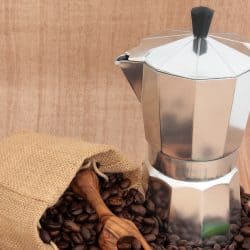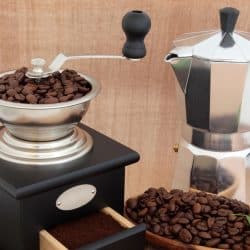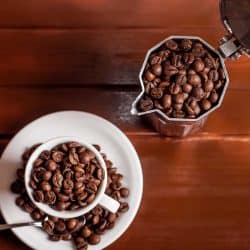If you are thinking about purchasing a percolator for camping or emergencies, you may be wondering if you need filters too. Or maybe you're trying to switch to a percolator, but you keep ending up with grounds in your coffee? If you need help with your coffee, you've come to the right place. We created this post and filled it with everything you need to know about using this heat-powered coffee pot.
Percolators do not require filters to make coffee. Although not required, filters are highly recommended to make use easier to create a more delicious cup of coffee.
There are different ways to use filters with a percolator, and some are more effective than others. Without using a filter, you are sure to find coffee grounds in your cup. For more information on filters, and additional tips on using a percolator, keep reading.
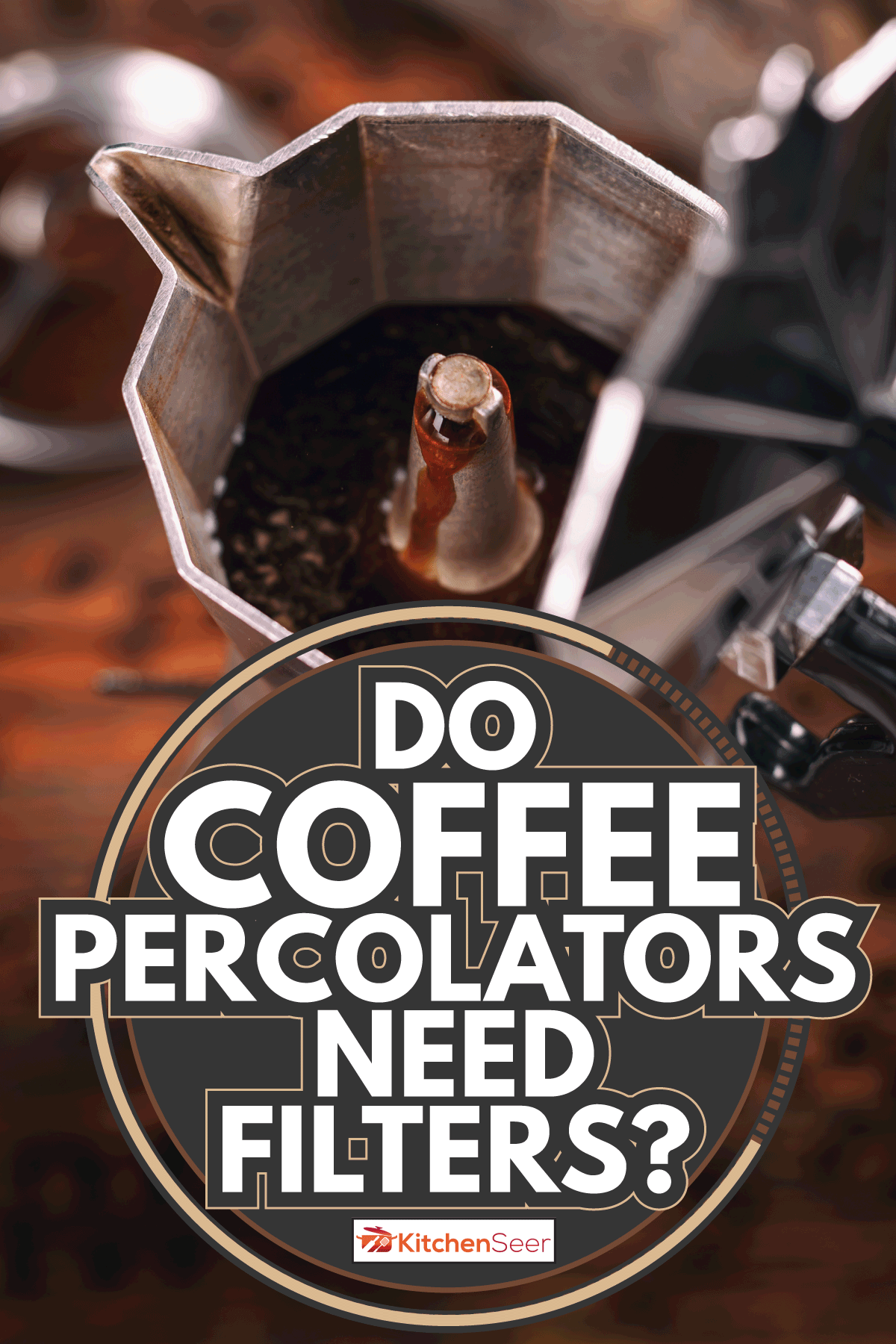
How Do You Use Coffee Filters in Percolators?
There are several different types of coffee filters made for use in percolators. They are shaped differently than basket coffee filters for electric coffee pots but are made out of the same paper-like material. Let's take a look at each one:
- Disc Filters
- Wrap Around Filters
- Reusable Percolator Filter
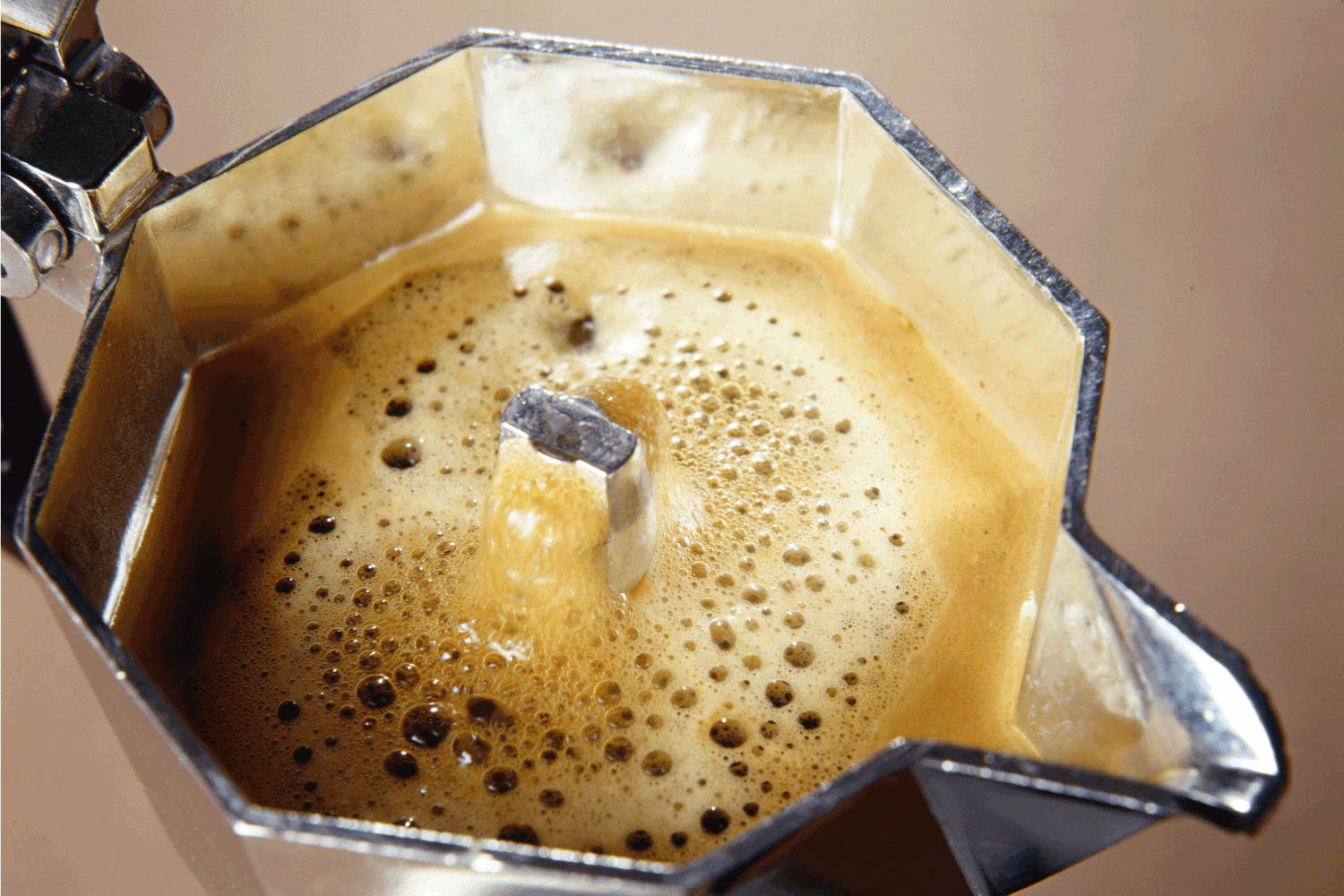
1. Disc Filters
These flat round filters are shaped like donuts, with a hole in the center to allow the stem through. The filter lays flat inside the bottom of the percolator's basket to prevent fine coffee grounds from slipping through the holes. Disc filters do not protect your coffee from grounds if the percolator boils over because they will come through the holes in the sides of the basket.
Melitta White Disc Coffee Filter
These disc coffee filters are loved by many for a good quality brew. Click here to see them on Amazon.
2. Wrap Around Coffee Filters
Wrap-around percolator filters are the most effective method of keeping coffee grounds out of your brew. This is the preferred style filter for most percolator users because it covers the bottom and sides of the basket. For the cleanest coffee, wrap-around style filters are the way to go.
Melitta Wrap-Around Filters
These filters will give you a ground-free cup of coffee with a smooth flavor. Click here to check them out on Amazon.
3. Reusable Percolator Filters
Reusable filter baskets are another great option. They work about the same way wrap-around filters do, but you can continue to use them. They reduce the amount of waste you create and save you money on buying disposable filters.
Tops Perma-Brew Reusable Filter
This reusable filter is good for three years and will work great to keep grounds out of your coffee. Click here to see it on Amazon.
Can You Use a Regular Coffee Filter in a Percolator?
You can use a standard drip brew filter for your percolator, with some slight modifications. This video will show you how to fold a filter to get a perfect, easy cut in the center for the percolator's stem. This method may allow some coffee grounds through depending on how well it fits in your percolator's basket.
Where Does the Filter Go in a Percolator?
The filter should be laid inside the percolator's grounds basket. The basket is a bowl-shaped metal piece with holes in the bottom and sides. The image above shows all the parts of a percolator with labels.
How Do You Filter Percolated Coffee?
If you've already brewed your coffee without a filter, and you ended up with a cup full of coffee grounds, there's still a chance to save it. A pour-over filter is another popular method to get a clean cup out of a percolator. Brew the coffee without a filter, then pour the coffee through the filter and into your cup.
Nuomi Cloth Coffee Filter
These cloth filters work great to make pour-over coffee or to filter your percolated brew. Click here to take a look at these on Amazon.
Can You Use a Percolator Without a Filter?
Yes, you can make coffee in a percolator without a filter of any kind, but you will have grounds in your coffee. For a clean and delicious cup of joe, it is highly recommended to use some sort of filter with your percolator, even if it's just a pour-over filter.
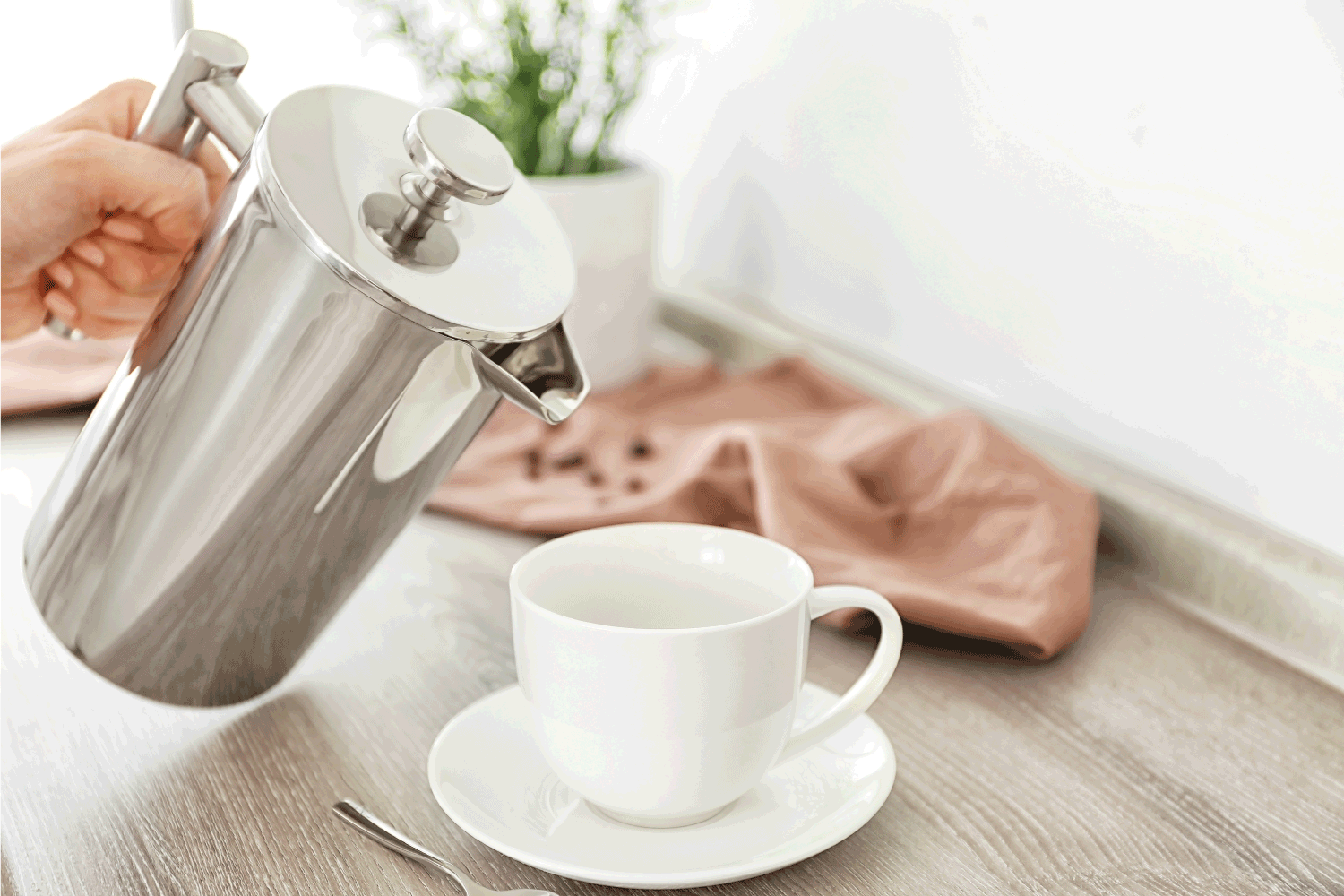
Do You Need a Filter For an Electric Percolator?
Most electric percolators do require a filter at all times. Unlike standard percolators, the coffee grounds can damage the electric models by clogging them up. It's best to use wrap-around or reusable basket-style filters with electric models, avoid disc filters that can allow grounds to escape.
Why Does My Percolator Keep Boiling Over?
When using standard percolators, it's essential to keep a close eye on them. Timing is crucial with these pots, as you need to adjust the temperature at the right times. Start on high heat, and once it begins to percolate, you need to turn the heat down. You will be able to hear the water coming through the stem, and you'll see it if you have a clear dome.
Coffee Percolator Vs. French Press
The French press is easier to use than a manual percolator since you don't need to worry about boil-over. French presses have a built-in filter system that works very well at catching the grounds without additional filters. While the press is easier to use than a manual percolator, electric percolators are still the most convenient of the three.
Bodum French Press Coffee Maker
This French press has great reviews and boasts a "ground-free" brew without additional filters. Click here to take a look at it on Amazon.
Coffee Percolator Vs. Drip System
A coffee percolator is great for times when electricity isn't available, like a power outage or camping trip. Drip systems rely on electricity to function, so they are not always available. Coffee from a drip system is milder than percolated brew, but it is usually cleaner as well. Drip systems are much easier to use, and the result usually tastes better than a percolator.
What Size Coffee Grounds Work Best in Percolators?
For the best tasting brew, you should use coarsely ground coffee in a percolator. If you can't find any coarse coffee pre-ground at the store, try grinding your own beans. You will be surprised at the difference in the taste of your coffee when using freshly ground beans.
JavaPresse Manual Coffee Grinder
This manual coffee grinder will give you precise control over the coarseness of your grind. Click here to see it on Amazon.
Why Does Percolated Coffee Taste Weak?
If your coffee tastes weak, it could be that the water isn't getting hot enough or staying hot long enough. Another possibility is that you may not have enough coffee grounds in the basket. Use at least two tablespoons per cup. If these methods fail, it may be your percolator. Check it over for any damage.
Why Does Percolated Coffee Taste Strong?
Finely ground coffee that you would typically use in a drip system will create a strong, bitter-tasting brew. Switching out for coarser grounds will help improve the taste. Letting your percolator boil too long can also result in a strong, bitter brew.
Is Percolated Coffee Healthier Than Coffee From Drip Systems?
Unfiltered coffee is worse for your health than filtered coffee. Paper filters catch small particulates in the coffee that can contribute to high cholesterol and heart problems. If you have health concerns, you may want to reconsider how you brew your coffee.
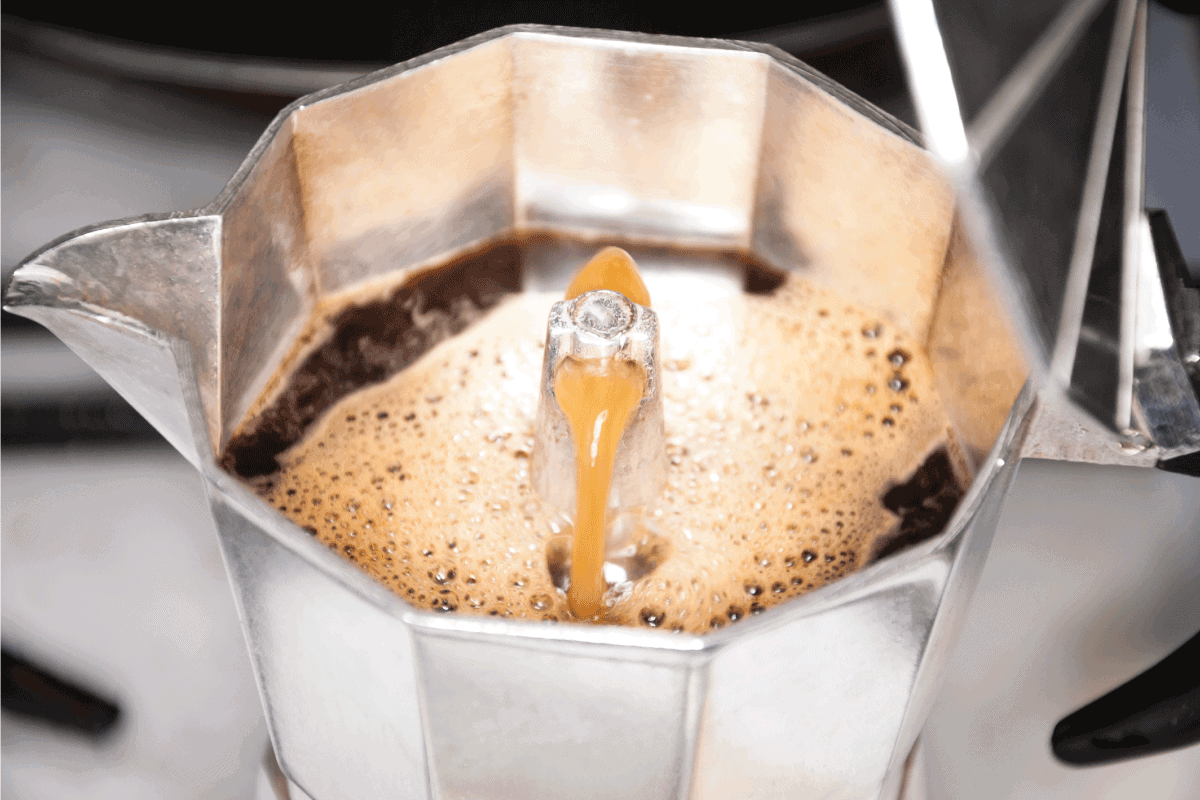
What it All Boils Down To
Now that you know the most effective ways to use your percolator, you're ready to start brewing. Remember to watch the pot closely to prevent boil-over, and keep an eye on children and pets when you're using it as well. Have fun exploring your percolator and enjoy the efforts of your labor.
For more tips and a detailed guide on percolating your own coffee, check out our article "How To Use A Stovetop Percolator [8 Easy To Follow Steps!]".
If you're prepping for a camping trip, you should read our article "How To Use A Campfire Coffee Percolator."

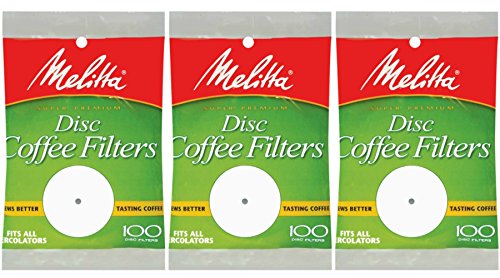





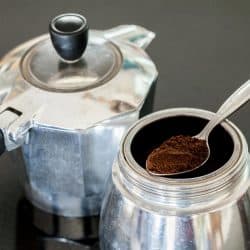
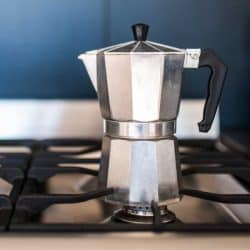
![A steaming percolator on a kitchen stove, How To Use A Stovetop Percolator [8 Easy To Follow Steps!]](https://kitchenseer.com/wp-content/uploads/2021/03/A-steaming-percolator-on-a-kitchen-stove-250x250.jpg)
